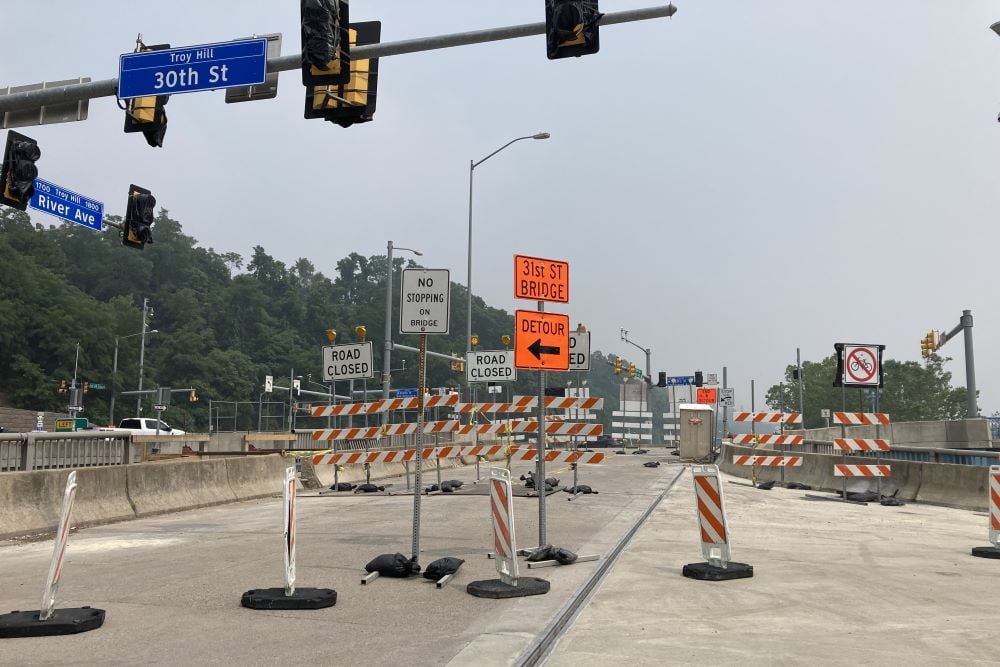Collier’s Weekly: In Pittsburgh, a Burned-Down House Becomes a Permanent Resident
The city seems unwilling or unable to address many day-to-day problems.
A few streets from me, there’s a duplex that last month burned almost — but not quite — to the ground.
When I walk by it today, it looks like an abandoned structure from a mid-century western. The windows and doors are gone, with charred, fallen wood piled around each entryway. What was once a porch sags into the ground below; a few wooden posts frame it like broken teeth.
Not long after the three-alarm fire, a bright, blue condemnation sign appeared on the front of the former building. It keeps falling down; someone apparently stops by now and then to put it back up. No one, however, has taken any steps to actually demolish the structure; it simply remains there, a burned-out shell in the middle of a busy street.
Neighbors on every side pick their way around rubble to get to their cars, warning their children to not approach the clearly dangerous ruins.
Fortunately, no one was killed in that fire. If the structure isn’t knocked down soon, though, someone — say, one of the teens I saw exiting the building when I walked by one day — could absolutely be hurt, or worse, by entering a wide-open, unsound building.
I suppose I shouldn’t be surprised that it’s still there. According to the city’s information page on condemned buildings, “A structure may be condemned for a number of years before [the Department of Permits, Licenses and Inspections] considers a City funded demolition.” There’s another web portal where residents are invited to give feedback on buildings that ought to come down, with a guarantee that such feedback is taken into account.
Forgive me if I’m a bit skeptical on that point. Because, for example, I’ve personally reported an abandoned car near my house to the city — about six months ago, in fact. It’s still there today. And when I previously wrote about the city’s litter problem (which is, if anything, worse), I got a very open and pleasant call with a representative to discuss the issue. I remember asking when Pittsburghers could expect the litter situation to visibly improve; I was told that an answer to that question was impossible.
The city does a lot of very big things well. When it’s time to host a marquee event, Pittsburgh shines; when space needs to be made for a high-profile new development or destination, red tape is removed, and things get done. Some grouse that the city is incapable of improvements; I don’t think that’s true. I can point to a half-dozen areas where the city has gotten better, cleaner and more welcoming in recent years.
All those examples, however, are big things. I think the city is good at big things. I also think it’s completely inept at small things.
When a house burns down, its husk shouldn’t sit in place for months on end attracting trouble (and vermin). When a car is abandoned, the city should be able to tow it within a year. When it gets warm, we should be capable of turning on the water fountains. And litter-coated streets don’t need a plan — they need a trash can.
There are a thousand valid reasons why things take a long time, and a lack of funding is one of them. But if the city can’t do basic things, it doesn’t matter how many big things it does well; everyday problems will always be lurking just around the corner.
By the way, I did try to call and ask some questions about the burned-down building and city-funded demolitions in general. I didn’t get a response.
I don’t know what they’re doing in that office, but evidently, it’s not answering the phone.













